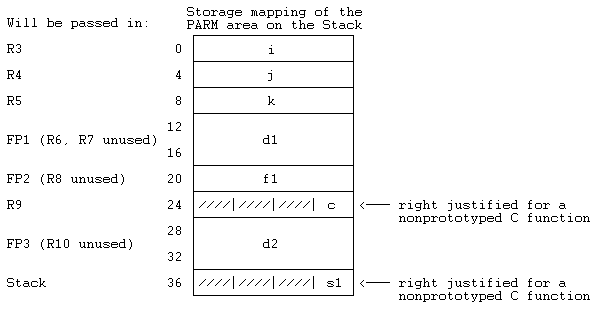
The following is an example of a call to a prototyped function:
int i, j; //32 bits each
long k; // 64 bits
double d1, d2;
float f1;
short int s1;
char c;
...
void f(int, int, int, double, float, char, double, short);
f( i, j, k, d1, f1, c, d2, s1 );
The function call results in the following storage mapping:

Notes:
![]()
Interlanguage Calling Conventions
Corresponding Data Types
Use the Subroutine Linkage Conventions in Interlanguage Calls
Sample Program: C Calling Fortran
